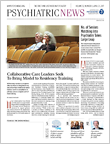Trainees and educators are wondering about the impact of the Trump presidency on psychiatry training. Neils Bohr said, “Prediction is very difficult, especially if it’s about the future.” That is especially true now, but we can sketch out some of the issues.
The battle about the replacement of the Affordable Care Act (ACA) is just beginning, and veteran observers think there will be many iterations. But we know that parity, the required inclusion of mental health coverage in the benefit structure, Medicaid expansion, and maintenance of insurance by those recently enrolled are all under threat.
Health care legislation will affect training in at least three ways. First, the revenue stream of academic medical centers, community hospitals, and psychiatry departments will decrease, and we depend on those funds to run our educational programs.
Second, the movement toward integrated care was turbo-charged by the ACA. The free market may be less motivating. Since good clinical education is always built on good clinical services, it is unclear whether we will truly be able to flex our wings and train residents effectively in integrated care without sufficient clinical settings available.
Third, the current generation of psychiatry residents is very committed to public psychiatry, and we are in a political environment where the emphasis is on cutting social service expenditures to fund infrastructure and defense.
The next major issue is graduate medical education funding. By the end of the Obama presidency, we were anticipating cuts and the replacement of a portion of current entitlements with incentive payments. It’s unclear whether the new administration will move in this direction. I expect that GME funding will be an issue in the coming years, and how a physician and orthopedist as secretary of Health and Human Services will relate to this concern is unclear.
Next, this administration’s commitment to free market health care will likely result in continued fracturing of the care system in psychiatry with ever larger percentages of psychiatrists opting out of insurance and Medicare. This is confusing to trainees, while an understandable decision for individual practitioners, it undermines the commitment to a system into which we are trying to integrate our trainees.
The travel ban may be having a great impact on trainees and psychiatrists already. Depending on the next steps, this policy, and the associated elimination of “premium processing” for H1-B visas, could adversely affect many residency programs with international medical graduates and create greater stress and uncertainty in many training settings.
Finally, the heating up of the culture wars, and the more divisive social discourse, evokes new anxieties and uncertainties in many of our patients as well as our trainees and faculty. Although not exclusively, psychiatrists tend to be socially liberal, and many surely struggle with the greater tone of exclusion and intolerance. We will need to continue to learn from one another how to address this problem.
In conclusion, despite Neils Bohr’s caution about predicting the future, I am pretty sure that the next few years will bring many challenges. It’s a good thing that our commitment to training is strong and we have so many educators, chairs, and trainees involved in finding creative solutions. ■

